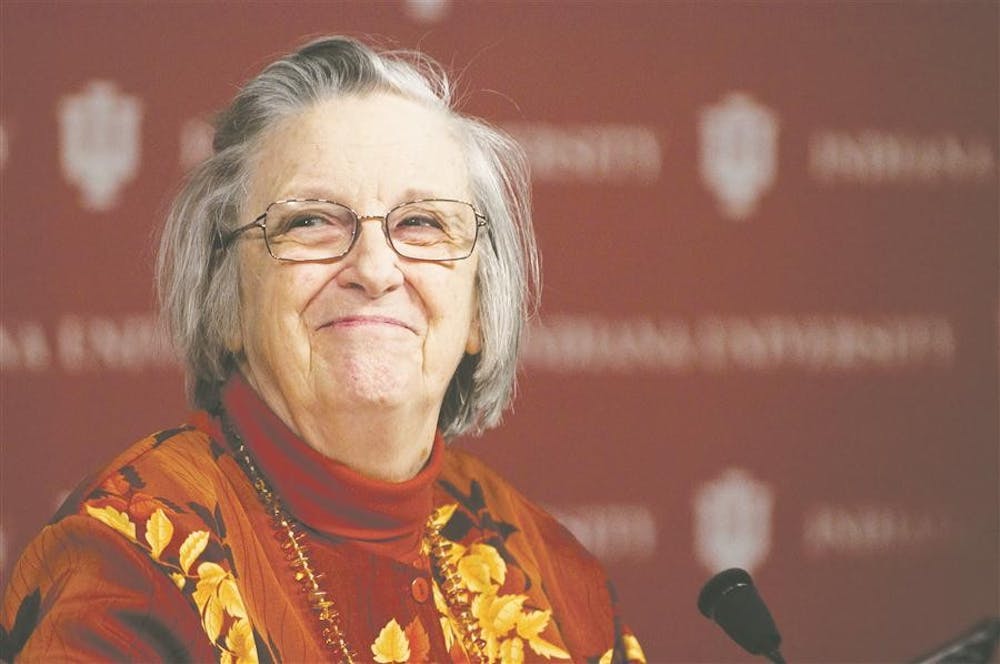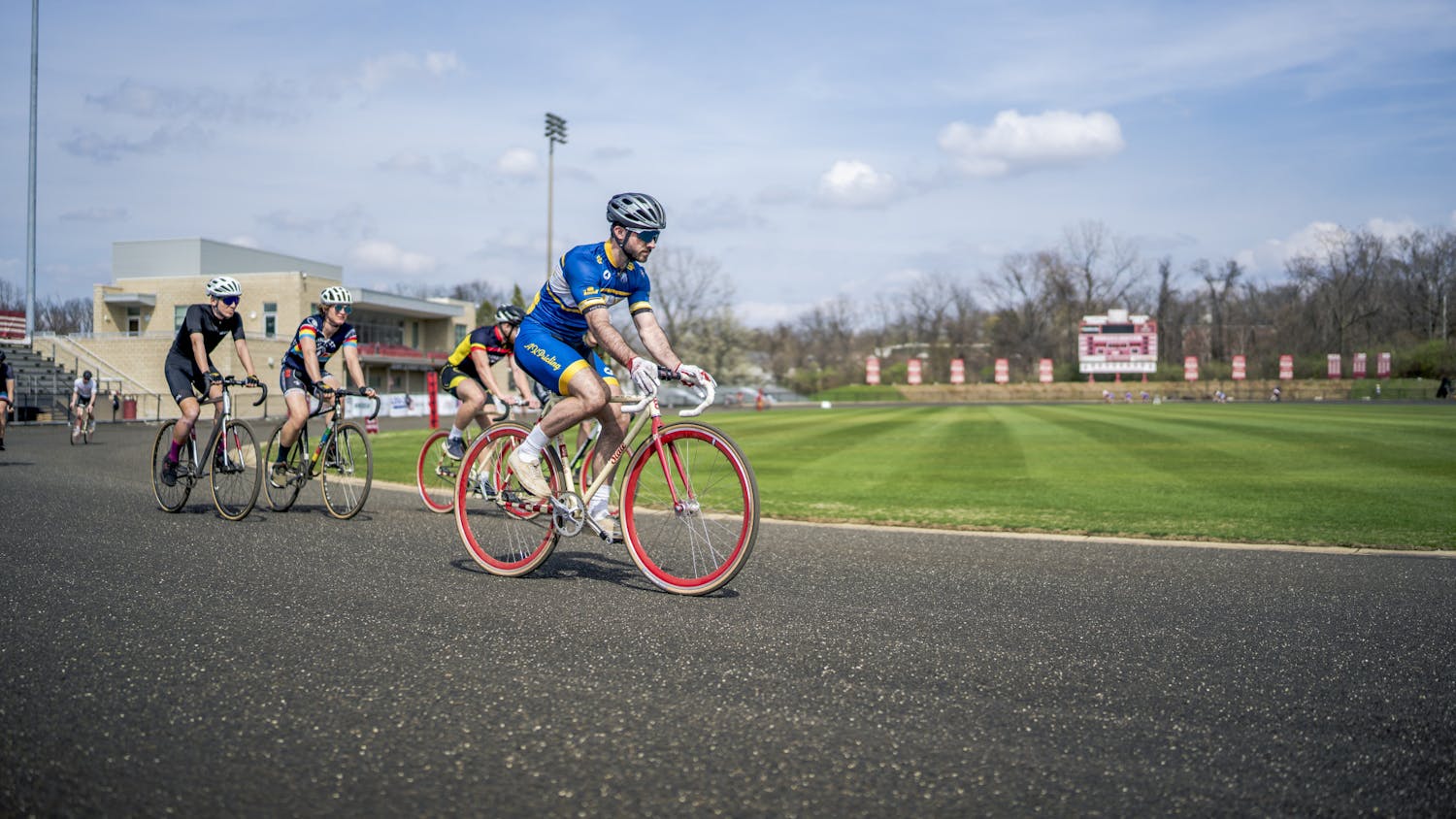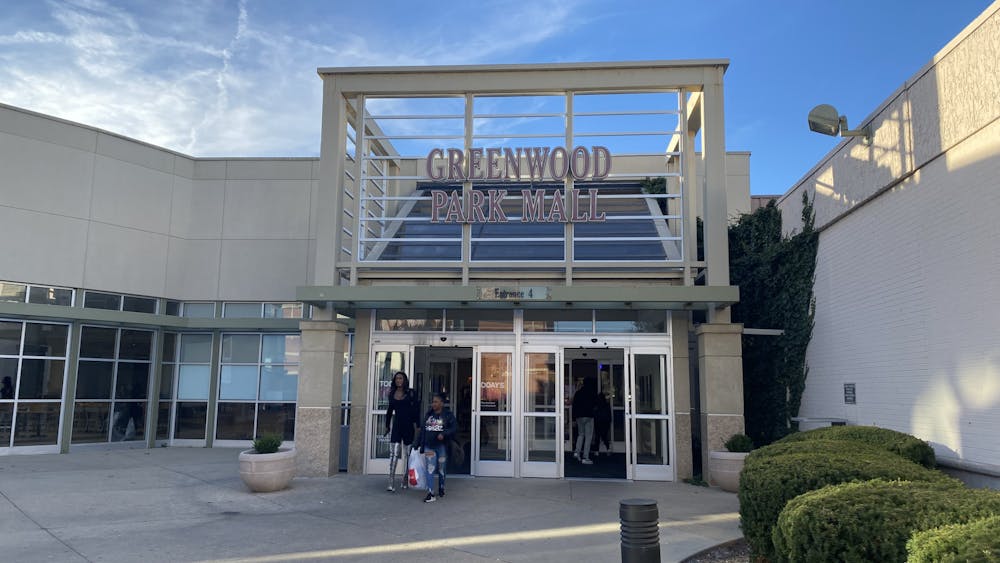As an undergraduate in the 1950s, Elinor “Lin” Ostrom was told she had two career choices.
“There was no encouragement to think about anything other than teaching in high school or being pregnant and barefoot in the kitchen,” said Ostrom, the Arthur F. Bentley Professor of Political Science at IU. “I don’t know how many times I was told about being pregnant and barefoot in the kitchen.”
Now, more than half a century later, Ostrom spent a Monday sitting in a TV studio and posing for an Associated Press photo shoot after completing interviews with the Wall Street Journal, BBC and The New York Times.
On Oct. 12, 2009, Ostrom became the first female recipient of the Nobel Prize in economics, a career many advised her not to pursue.
“So that’s a lesson,” she said.
HER STORY
At 6:30 a.m. Oct. 12, 2009, Ostrom received a phone call.
At first she thought it was a telemarketer, but once she heard the voice she knew it was from the Nobel committee.
Nine hours and countless interviews later, Ostrom was still processing the instant international fame.
“When it’s been this hectic, you don’t have much time to think about it,” she said. “It’s been a very exciting day, and I’m very appreciative of being able to talk to people, and I hope I survive it.”
In a white house on the west edge of campus, congratulatory flowers stream in. The house is the building for the Workshop in Political Theory and Policy Analysis, which Ostrom and her husband, Vincent, helped found in 1973.
The Ostroms founded the workshop in an effort to approach political-economic scholarship in a new, interdisciplinary way.
Covering its walls are artifacts and art pieces gathered from around the world.
“Look at it around here — this is not the normal academic office,” said the workshop’s co-director Michael McGinnis. “Look at the stuff on the walls — it looks like you’re in an area-studies institute.”
The collection extends throughout the building and into Ostrom’s second-floor office, which isn’t the expansive corner office one might expect of a Nobel laureate.
Squeezed narrowly into a single-window room are an aged wooden desk and beige metal filing cabinets. Four fluorescent light bulbs cast a dusty yellow glow on the crumbling ceiling.
One wall is plastered with a faded National Geographic map and a whale calendar still showing May.
The only indications of Ostrom’s award are a single bouquet of flowers sitting on the desk and an envelope addressed to her as the “2009 Nobel winner.”
And the two papers in her opened briefcase?
The official Nobel certificates.
HER CONTRIBUTION
Downstairs at the center, three international students discussed Ostrom’s significance in the economic community.
“She’s a political scientist, definitely, but she’s so big that she spills over into being an economist as well,” said Pontus Strimling, a mathematics post-doctoral student from Sweden.
Strimling explained Ostrom’s major area of research, common pool resources, as land or property that is not controlled by government nor by private entities, but rather is shared among individuals.
“Think of a fish in a lake or an apple tree — it’s hard to keep other people from going there and picking the apples, and the apple that someone picked, no one else can have it,” he said. “Her theory is about what kind of agreements make sure fishing is sustainable, or that the apples are distributed equally.”
Biologist Somabha Mohanty, a Ph.D. candidate in the School of Public and Environmental Affairs described how Ostrom transformed traditional thinking about groups dividing resources.
“She tried to look at communities that for many years had actually been sustainably managing these common pool resources,” Mohanty said. “These were not privatized resources nor were they owned by the state, but communities and groups had created their own systems and rules for managing these resources.”
McGinnis said Ostrom and her team of researchers found many different common property systems around the world.
“She has really revolutionized the way in which people understand the commons,” he said. “There are some things you can’t divide up into private property — you can’t put fences in the sea and carve up different fishing areas.”
In her ground-breaking 1990 book, “Governing the Commons: the Evolution of Institutions for Collective Action,” Ostrom argued there are other ways to control resources besides complete government regulation, and one solution won’t apply to all problems.
“What I’ve learned is the dichotomy of ‘the market’ and ‘the state’ is not a useful dichotomy,” she said in an interview with the BBC on Oct. 12. “There are many more institutional arrangements out there in the world. ... When we try to develop a top-down formula, the same formula for every place in the country, that’s where we seem to run into serious trouble.”
IN THE NATIONAL SPOTLIGHT
Ostrom is a Nobel celebrity now, but those who have known her for decades or even a couple months said they believed the award wouldn’t change her.
“She’s probably the most brilliant and energetic person I’ve ever met,” Mohanty said. “She likes to hear what everyone says. It is very important to her that she works with everyone as a team and as colleagues, not as this high professor talking to students.”
McGinnis echoed these sentiments, having worked with Ostrom for more than 20 years.
“Her and Vincent have a house out in the country. They’re very rustic, very down-home people,” he said, “and yet the smartest people I’ve ever met. The hardest working, and yet just normal folks.”
Even after reaching the pinnacle of academia, Ostrom remains grounded, McGinnis said.
“A lot of people at her level — and there aren’t many — but a lot of them are kind of full of themselves, and she’s not,” he said.
In the middle of the biggest day of her life, Ostrom took a break from the national spotlight to spend 10 minutes with two student reporters.
“I’m still interested (in teaching),” she said. “I like your questions. I learn from my students — they give me new ideas and new direction and all the rest. This is a passion for me. I don’t have to do it.”
— Originally published in the Indiana Daily Student, Oct. 13, 2009.
Marking her mark
IU professor Ostrom first woman to win Noble Prize in economics

Get stories like this in your inbox
Subscribe





